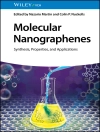This comprehensive volume covers the entire field of flavonoids by explaining their complex functions in reducing chronic metabolic illnesses, from the early stages of laboratory research to the development of therapeutic uses.
Flavonoids are plant-based substances proven to have potential medical benefits in managing chronic metabolic disorders. This book explores concepts in laboratory research and therapeutic capabilities to enhance awareness of flavonoids in a medical context.
The book begins with a thorough examination of the basic biochemical and molecular processes that underlie long-term metabolic disorders. It looks into these bioactive substances, from their natural origins to the synthesis of innovative derivatives. Analyzing both lab research and preclinical trials critically, it provides a solid basis for understanding the exciting opportunities flavonoids bring in treating metabolic diseases.
The scope of this work extends beyond theoretical domains into clinical environments. It closes the gap between bench-side findings and bedside applications by revealing the translational potential of flavonoids. It is possible to understand the practical implications and future directions of flavonoid-based therapeutics through the synthesis of evidence-based clinical studies, therapeutic approaches, and possible healthcare issues.
Readers will find the book:
- contains cutting-edge insights into metabolic disease research and delves into recent discoveries on the molecular mechanisms of flavonoids;
- facilitates a viewpoint into the findings of practical clinical implementations and the progression of flavonoid investigations from controlled experimental environments to prospective therapeutic interventions;
- explores the scientific effects of flavonoids on chronic metabolic disorders;
- presents evidence from human trials and epidemiological research on flavonoid clinical processes;
- encompasses various aspects of preventive measures for managing widespread metabolic diseases, containing dietary recommendations, lifestyle interventions, and the potential involvement of flavonoids;
- offers a comprehensive guide on how to effectively utilize flavonoids for therapeutic purposes.
Audience
This book is intended for researchers, scientists, clinicians/physicians, and public health professionals who work in pharmacology settings. The book is a vital tool for clinicians, nutritionists, and other healthcare professionals who are concerned about cutting-edge methods for dietary guidelines to gain an understanding of flavonoids and long-term metabolic disorders.
Circa l’autore
Neeraj Mishra is a professor at the Amity Institute of Pharmacy, Uttar Pradesh, India. He has published more than 100 articles on novel drug delivery systems, localized drug delivery, and targeted and controlled drug delivery on nanocarriers in international and national journals, as well as 15 books. He has been granted three international and three Indian patents.
Sumel Ashique is an assistant professor at the Bengal College of Pharmaceutical Sciences & Research, West Bengal, India. Research interests include drug delivery, nanotechnology, and target treatment strategies. Ashique has published more than 60 articles in international and national-reputed journals and has been granted four patents from India and Australia.
B.H. Jaswanth Gowda is a senior research fellow at Yenopya (deemed to be a university), Mangalore, India. His research primarily focuses on developing varieties of nano- and micro-based transdermal and ocular drug delivery systems, including microneedles, for the treatment of various disease conditions. He has authored 40+ research and review articles and book chapters.
Arshad Farid is an assistant professor at the Gomal Center of Biochemistry and Biotechnology, Gomal University, Pakistan. He has more than 90 international and national publications and 15 international patents.
Ashish Garg is an assistant professor in the Department of P.G. Studies and Research in Chemistry and Pharmacy, Rani Durgavati, Jabalpur, India. He has published over 80 articles in national and international journals, authored 15 book chapters, and edited 6 books. Garg has been granted three international patents and published three Indian patents.












